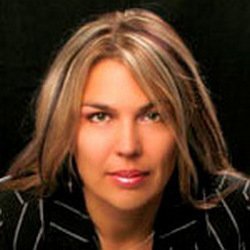Tatarstan’s tourism short of 2,5bn during first COVID-19 half of the year
The tourism season shifted from summer to autumn because of the coronacrisis, market players hope to offset the losses in the second half of the year
As Realnoe Vremya found out, tourist services in Tatarstan totalled just 4 billion rubles during the first coronacrisis half of the year — a record low in the last five years (compared to last year, the sector is short of about 2,5 billion rubles). The situation is characteristic of the whole tourism industry, however, Russian southern resorts just benefited while the borders are closed and were full like never before when the first restrictions were lifted. Market players evaluate that demand for Russian resorts during the peak season has grown by 30% on average. Tour operators hope to offset some losses in the second half of the year with the resumption of international flights, as the tourist season shifted to the end of summer and beginning of autumn a bit.
Incomes fell by more than a third
The republic’s tourism is short of at least 2,5bn rubles because of the coronacrisis in the first half of the year, Realnoe Vremya found out. So services related to tourism, health resorts and hotels in Tatarstan were sold for just 4 billion rubles for six months, 38% lower than last year. It is the lowest number of the sector in the last years. To compare, the republic earned almost 6,6 billion rubles on tourists in January-June 2019 (according to Open Tatarstan portal where agencies’ reports are published).
“Foreigners like to visit Russia precisely in summer. According to them, our winter is cold. We had foreign groups and corporate orders for this season of the year... I think we have lost about 20% of the annual income in summer,” Director of Travel&Work from Kazan Yuliya Talanova confirmed the significant losses.
Opportunities for outbound tourism have begun increasing in the last weeks, apart from Turkey. The Russian government recently approved a resumption of flights to three countries — Egypt, the UAE, the Maldives. It also announced the opening of the borders with Greece, but travel agencies don’t hasten to be glad about it.

Ramil Miftakhov finds it hard to say how much money Persona Grata had lost. According to him, as many as 30% of travel agencies left the market of Kazan. “I think that 50% will have closed by winter,” thinks the president of the Association of Travel Agencies of Tatarstan.
It is hard for companies to make plans amid uncertainty after the lockdown and when the market’s focus is changing. As the individual segment is gaining momentum, demand for services of small travel agencies will go down, assumed the director of Kysh Babay’s residency.
“The news about Greece just appeared, people began to call us, ask about it. But even if they call, we can’t offer it. Take the same offer of Russia’s Agency for Tourism with Mir card: we’re a small company, it is unprofitable for us to carry costs in this programme, which had to be done fast, we need to save the staff and office after the crisis. This programme isn’t obviously for a small business as well as the offer for a tourist in Tatarstan “three nights for two” and discounts in restaurants — they are designed for direct owners of hotels and public catering establishments. How much will our market grow? The business of travel agencies is overboard again,” stressed Director of Interltour Liliya Savelyeva.

She believes that this is why those travel agencies that will be creative and offer original tours will survive. “You sit and analyse if you can offer a person something interesting than he can not find himself,” concludes Liliya Savelyeva.
Over 7% of children bunk off school in September
Self-isolation and other restrictions hit domestic tourism as well, which influenced the general tourist traffic to Tatarstan: in June-August 2020, it fell by 42,5% compared to the same period in 2019, says Tatarstan’s State Committee said. So in June-August 2020, over 750,000 people visited the Kazan Kremlin, or 60% of last year’s visitors. More than 258,000 tourists went to the island town of Sviyazhsk, which totalled 76% of last year’s numbers. Over 11,000 and 91,000 travellers (44% and 49%) visited Chistopol and Yelabuga respectively, while 107,000 holidaymakers went to Great Bolgar, which accounted for just 34% compared to last summer.
But it is assumed that tourists will be travelling longer this autumn. As the peak of the coronavirus pandemic was in our country in spring, restrictive measures stayed in May-June (when, as a rule, holidaymakers start to travel across Russia and abroad), a handful dared to leave their home for the sake of long-haul travel. Some representatives of the tourism business think that this was the reason for the shift in the active tourist season. The first days of September in schools are illustrative in this respect.
The share of schoolchildren who “bunked off” Knowledge Day has increased this year, note analysts of Tutu.ru service for trips and travelling who tracked the movement of holidaymakers. Last year the number of people who went on holiday in summer and were back after 1 September was 6%, this year it is about 7,5%. Moreover, Anapa’s popularity went up notably: about 9% of “truants” stayed there on 1 September last year, this year the number is above 15%. Moscow’s attractiveness on the first days in September decreased twice. Moreover, Kaliningrad joined the top 10 places where schoolchildren celebrated 1 September, which wasn’t in the top 10 last year.
“We see that some Russians are interested in the beach season in Sochi and Crimea in November, especially in southern regions. They are already booking tours for October. This is why the season shifted a bit due to natural reasons because of the quarantine: we lost the May holidays and the first half of the summer as well,” PR Director of Intourist travel agency Daria Domostroyeva told our newspaper.
Travel agencies in Tatarstan have a different experience this year.

“Many choose autumn because there are fewer children at resorts — everybody is at school, it means there are fewer tourists in general. I sold a tour to Crimea in late September just yesterday. There isn’t too high demand for autumn,” creator of Kysh Babay’s residency Yuliya Talanova.
“Russia is full”
The representatives of the tourism business agree with one thing: cities and resorts of our country were in higher demand from Russian travellers than usually. Even though many Russians have refused to travel this summer, the number of those who didn’t stay home in summer is high enough (including parents with children). The share of schoolchildren who went somewhere by plane in Russia has increased from last year’s 9% to 11%, Tutu.ru’s analysts note. Moreover, some passengers preferred planes (experts note the slow resumption of demand for railway tickets) probably as the fastest and safest way to get somewhere from a perspective of the amount of contacts during the coronavirus pandemic. According to Tutu.ru, Simferopol, Sochi and Anapa are the most popular destinations this summer. The three cities have accounted for about 50% of the total summer passenger traffic and almost 60% schoolchildren who have gone somewhere this summer. Moscow has become less popular in the top popular destinations. The share of tickets sold there has decreased from 14% to 8%.
Plane ticket prices favoured tourists. They decreased, especially in southern destinations. For instance, a two-way ticket from Moscow to Simferopol has decreased by 20% compared to last year, to 13,400 rubles. It has become 23% cheaper to go to Sochi from Moscow — 12,300 rubles. Tickets from the capital to Anapa this summer have been 29% cheaper on average, the average price has reduced from 17,800 to 12,700 rubles. However, the experts note that this year’s trips have been almost twice shorter: 7-8 days is the popular duration of the holiday.
“Krasnodar Krai and Crimea resorts were 99% full at the peak of the season. Though the highest occupancy rate in July-August last year reached 70-80%,” Ramil Miftakhov stressed.
“Yes, people have rushed to our Russian resorts because there was clearly no place to go besides them. All destinations were full: Altai, Kaliningrad, Sochi, Crimea,” Liliya Savelyeva confirmed.
Turkey “falls” nine times
As Turkey opened its borders for travellers in August, we tried to compare the demand for a holiday in Russia and abroad. However, the president of the Association of Travel Agencies considered this wrong.
“It’s like comparing ‘white’ and ‘long’. For instance, 500 people are promised to be allowed to travel to Greece a week in September — it’s nothing. Turkey opened on 15 August when Russia was already a hundred per cent full because it opened in July. As a rule, foreign tours are booked in advance, while Russia is ‘sold’ one or two months to a planned trip. Mainly those who postponed the data of the trip or booked a tour for August-September because of the restrictions: tours can be sold in January,” Miftakhov explained.
Moreover, just three cities were available for flights to Turkey. Turkey has fallen nine times compared to last year. Last year, there were 19 cities for travelling, and now they have been four only now. The number of opened cities of departure is too low, but they are full now because there is a huge amount of postponed requests,” Intourist’s specialist added.
It is more profitable to be an individual tourist
Tours are sold well enough in the Moscow travel agency, including tours across Russia. Russia’s Agency of Tourism’s offer with cashback became good support for such a big company.
“Sales grew by 45% during the week of the offer with cashback, from 21 to 28 August. Sales of Sochi increased by 20%, sales of Tatarstan grew by 45%. The growth of domestic tourism, sale of tours in August in general totalled from 20% to 25%,” noted Domostroyeva.
Tatarstan companies have a different situation.
“Demand for Russia in the travel agency in August was low. 90% of the tourists book hotels directly without travel agencies because hotels offer lower prices than travel agencies did where only 10% of holidaymakers go,” the head of Persona Grata commented.

“Sales across Russia through the company didn’t increase. I know how many people travelled across the country through a trendy team building programme with business coaches, to Altai, Kamchatka and so on. Russians choose groups for active tourism: they go to the mountains, go rafting. But individual tourism is the majority. Even during the self-isolation period when Kazan just opened and we walked the streets in masks, people came from the closest regions on their own, the same citizens of Kazan went outside the republic,” Yulia Talanova analyses.